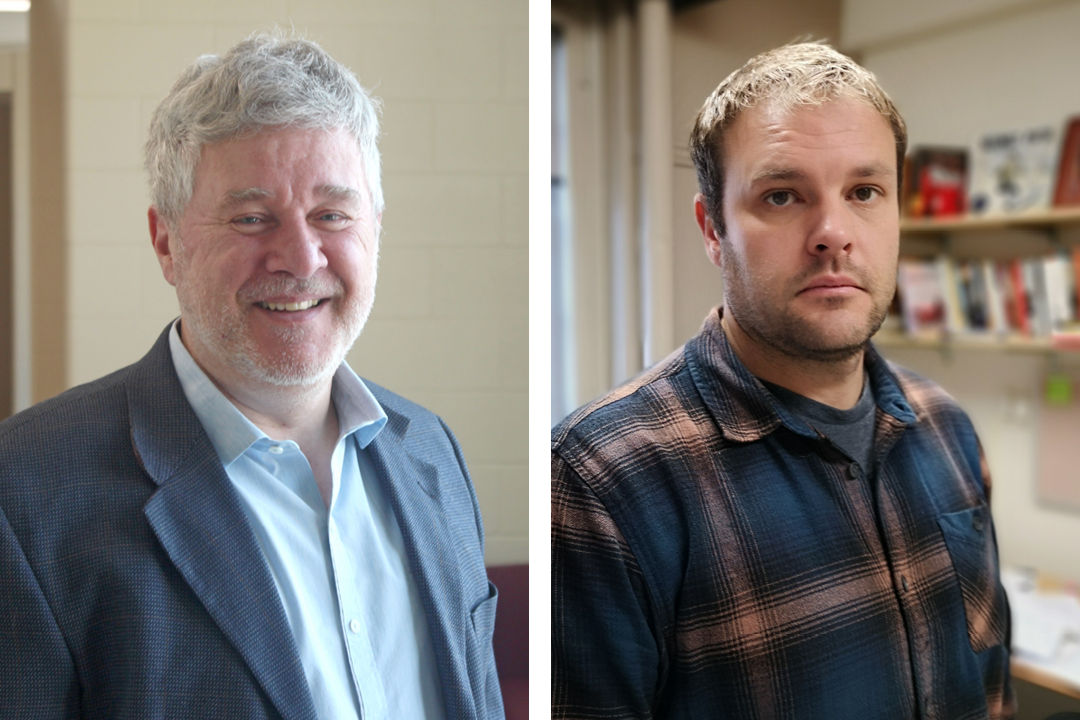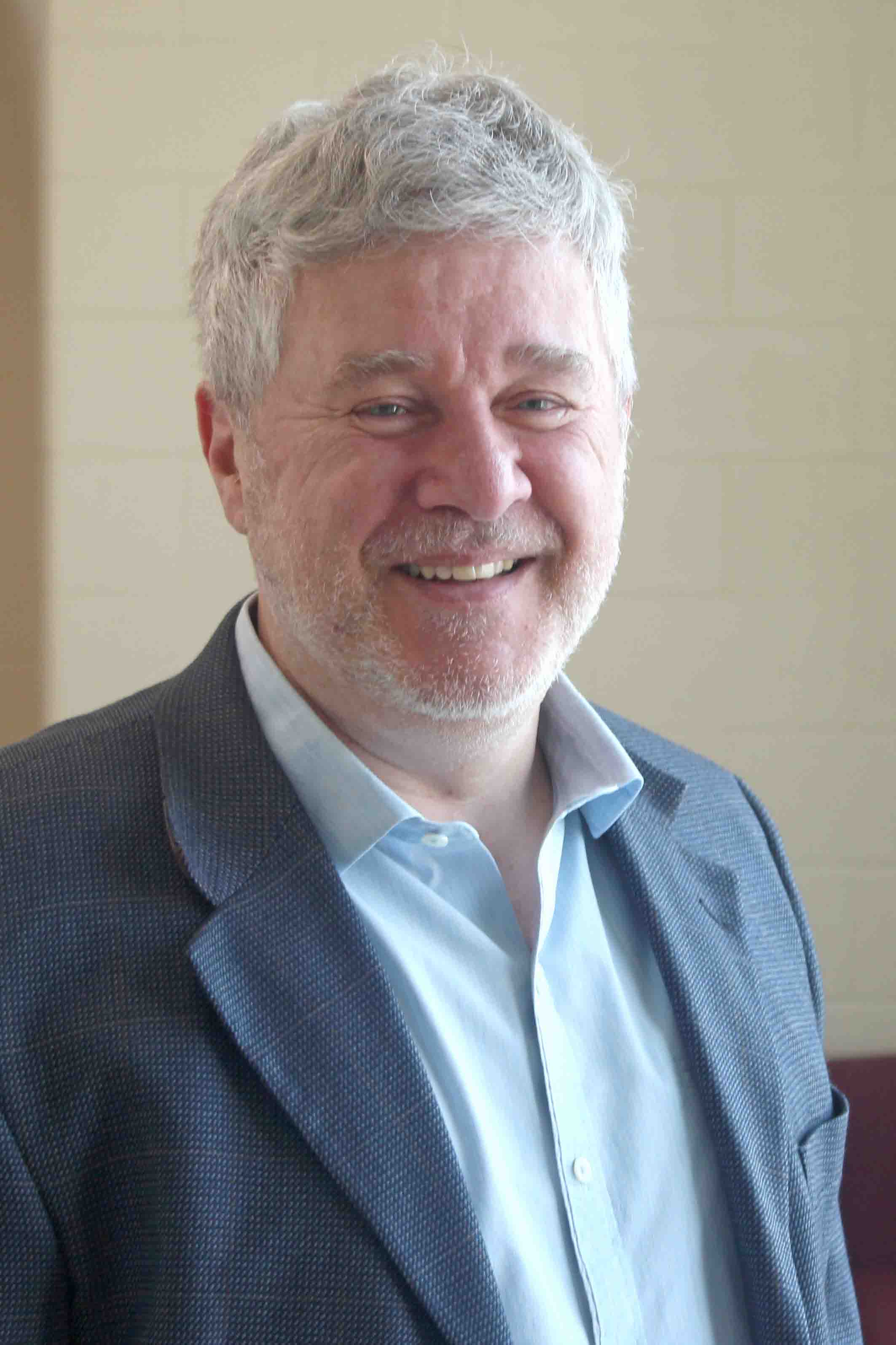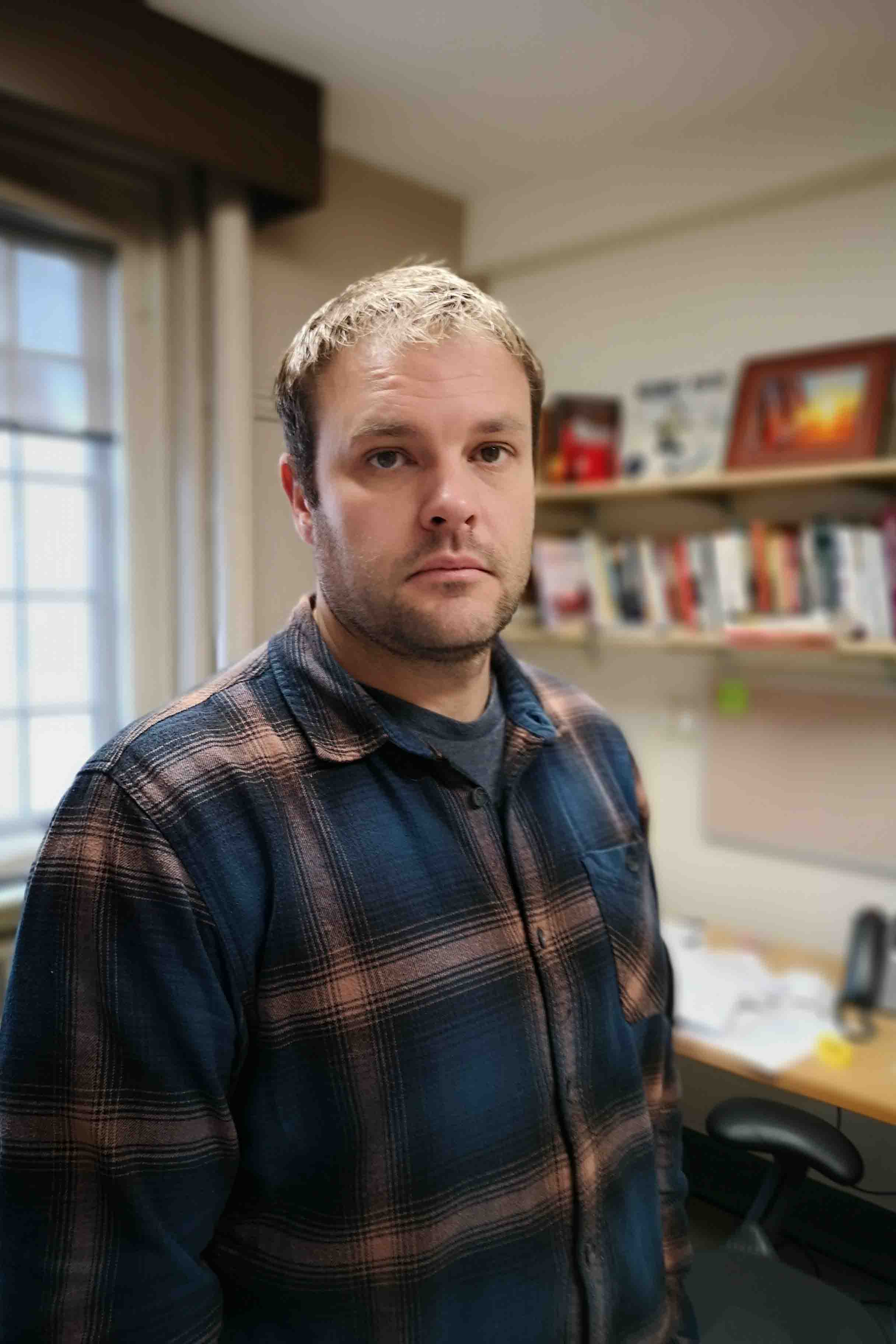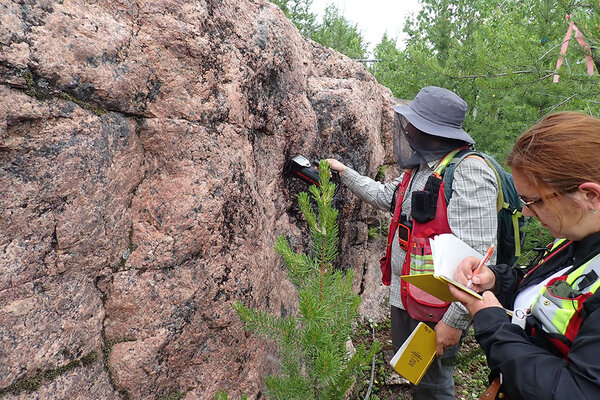
College of Arts and Science faculty recognized for significant research impact
Two faculty members were presented with college awards for outstanding research, scholarly and artistic work
Two faculty members from the College of Arts and Science have been recognized for their outstanding research and scholarly contributions.
Drs. Ray Spiteri (PhD) and Robert (Bobby) Henry (BEd’04, MEd’09, PhD’15) received the Distinguished Scholar and New Scholar awards respectively.
Spiteri and Henry were announced as recipients of the awards at a faculty council meeting on May 14.
600800jpg

Distinguished Scholar Award recipient Raymond Spiteri
Dr. Raymond (Ray) Spiteri (PhD) is a professor in the Department of Computer Science and an associate faculty member in the Department of Mathematics and Statistics. He is the 2024 recipient of the Distinguished Scholar Award.
Spiteri is an expert in numerical analysis, scientific computing and software, and high-performance computing. He has been a faculty member in the College of Arts and Science since 2004. Throughout his career, Spiteri has published more than 140 peer-review articles and received approximately $7.2 million in funding for research projects he has led and co-led. He has advised 37 graduate students, 22 undergraduate students, 21 postdoctoral fellows and 32 Mitacs projects.
Spiteri’s research has made a significant impact in his research areas over the years. In 1997, Spiteri published a paper titled, Implicit-explicit Runge-Knutta methods for time-dependent partial differential equations. This publication has been cited more than 1,300 times and cited in several books. The methods Spiteri outlined are often used by the US Department of Energy, the US Department of Defense and NASA. He has also created industrial strength, user-friendly software used across industries internationally.
He is highly sought-after to collaborate on local, national and international research projects at various agencies, including Environment and Climate Change Canada (ECCC), Los Alamos National Lab and Lawrence Livermore National Labs in the United States, and the Simula Research Laboratory in Norway.
600800jpg

New Scholar Award recipient Robert Henry
Dr. Robert (Bobby) Henry (BEd’04, MEd’09, PhD’15) is Métis researcher and associate professor in the Department of Indigenous Studies. He is the nominated principal investigator of the nātawihowin and mamawiikikayaahk Research, Training and Mentorship Networks, Saskatchewan Network Environments for Indigenous Health Research (SK-NEIHR) and the NEIHR National Coordinating Centre. He is also aTier II Canada Research Chair in Indigenous Justice and Wellbeing. He is the 2024 recipient of the New Scholar Award.
Henry is a world-renowned researcher on improving public understanding of Indigenous gangs, Indigenous masculinities, how to support Indigenous youth, and social determinants of health, including physical culture, community health, mental health and wellbeing. He also studies Indigenous “survivance”— a term that combines “survival, resistance and resurgence.”
He leads community-driven research as a principal investigator, or co-principal investigator, on grants for a combined worth of more than $19 million. Henry's community research projects have included the creation of the Sites of Survivance Network as well as the Indigenous Hockey Research Network, which explored Indigenous hockey experiences within Canadian settler colonialism. This resulted in four scholarly and two public publications, as well as a short-film titled, māmawi sihtoskātotān (let’s support one another), which documents the final game of the Beardy’s Blackhawks hockey team.
Henry is also the senior author and editor of three books and a contributor to two more. As a PhD student at USask, he self-published a book, Brighter Days Ahead, which shared stories of Indigenous gang members, as told by the individuals themselves. He also published, Indigenous Women and Street Gangs: Survivance Narratives, in which Indigenous women describe their stories of resilience.
Henry has been invited to make presentations from a local to international scale, including at the American Society of Criminology, International Sociological Association and the United Nations Office on Drugs and Organized Crime.
Together, we will undertake the research the world needs. We invite you to join by supporting critical research at USask.


